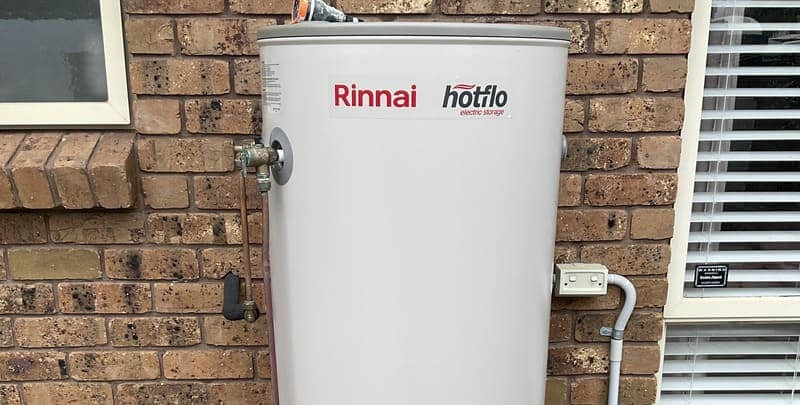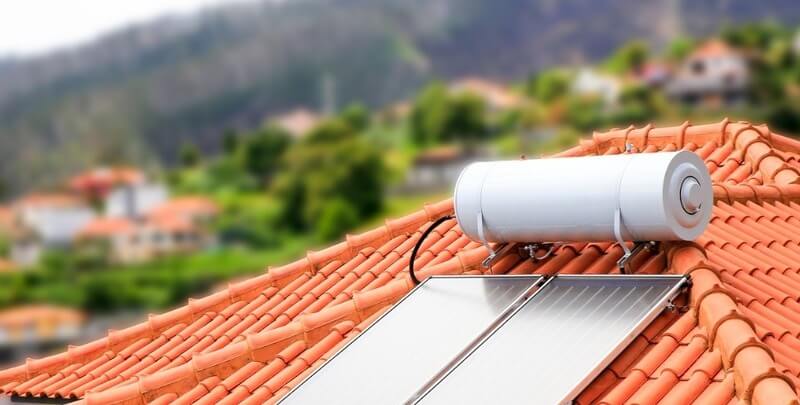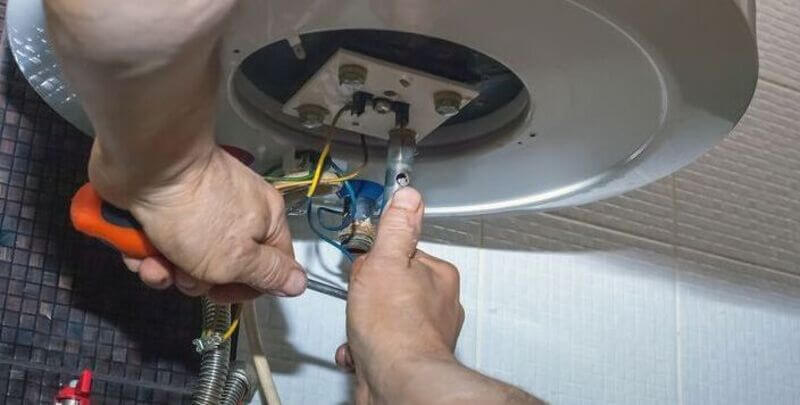
When Should You Replace Your Hot Water System?
All of us rely on hot water, regardless of the season. In virtually every home, hot water systems are as essential as a functioning fridge, a reliable stove and a working air conditioner.
In this blog, we’ll decrypt the mystery of when it’s time to replace your hot water system and the different types available.
Water heaters are appliances that use an energy source to heat cold water above its initial temperature. At their core, water heaters function through a straightforward mechanism, irrespective of their type.
To start with, let’s take a look at the most common type of hot water heater.
Storage Tank Hot Water Systems
This is what you’ll find in most Australian homes. Before we explore the complete range of hot water systems, let’s understand the important components of these reliable units.
Heating Elements and Storage Tanks
The central part of the system involves a heating element and a storage unit. The heating component does the work of raising the temperature of the cold water. Heating can occur either through a gas flame below the storage tank or electric elements inside it.
For instance, in an electric water heater, electric elements are immersed in the water, which when heated, transfer heat to the surrounding cold water.
A storage tank is where heated water is stored. These tanks come in various sizes depending on the hot water demand of a household or building.
The Thermostat
Water heaters are also equipped with a thermostat, a device that measures the water temperature in the storage unit or tank and maintains it within a preset range. When the water temperature falls below the minimum threshold, the thermostat triggers the heating component to resume the heating process.
Conversely, if the water temperature exceeds the maximum limit, the thermostat will switch off the heating component to avoid overheating and potential damage.
From this vantagepoint, water heaters essentially perform a simple task − they take in cold water, heat it to a desired set temperature, store it for use, and ensure a continuous supply of hot water as per demand.

Exploring Different Types of Hot Water Systems
Choosing the right hot water system that suits your needs can be challenging due to the variety of options available out there.
So, let’s take a deep dive into the different types of hot water systems on the market, including their benefits and drawbacks, so you can make an informed decision.
Continuous Flow Systems
Also known as instantaneous or tankless water heaters, continuous flow systems use high powered burners to rapidly heat water as it runs through a heat exchanger and deliver it directly to your faucets or shower without the need for a tank.
Here are some benefits and drawbacks:
Pros:
- On-demand hot water: Continuous flow systems provide hot water only when you need it, which can help save on energy bills.
- Space-saving: As there’s no need for a storage tank, these systems are compact and great for homes with limited space.
Cons:
- Higher initial cost: These systems can be more expensive to buy and install than traditional water heaters.
- Flow rates can be limited: If multiple hot water outlets are used at once, the system may not be able to keep up. Not always ideal for a big household.
Solar Hot Water Systems
As the name implies, solar hot water systems use energy from the sun to heat water. They comprise solar collectors (solar panels) installed on the roof and a storage tank.
Pros:
- Energy efficient: Solar hot water systems can significantly reduce your energy bills and are environmentally friendly.
- Government incentives: With governmental rebates available for the installation of solar systems, the initial high cost could be offset.
Cons:
- Dependent on weather: These systems rely heavily on sunlight, so they might not be as effective on cloudy or rainy days. However, most systems have a backup gas or electrical heater to counter this issue.
- High upfront costs: Solar hot water systems can be expensive to install, but the long-term savings typically outweigh the initial costs.

Heat Pump Systems
Heat pump systems, a relatively new technology, work like a refrigerator in reverse. They absorb heat from the air and transfer it to the water.
Pros:
- Energy efficient: Heat pumps are highly efficient and can help you save on your energy bills.
- Less dependence on sunlight: Unlike solar heaters, heat pumps can work efficiently in various weather conditions.
Cons:
- Possibility of noise: Heat pumps can produce noise similar to air conditioners.
- High upfront costs: Despite the higher initial cost, the energy savings over time will offset this.
Electric and Gas Storage Systems
As previously stated, these classic hot water systems use a tank to store and heat water. While electric models use electricity to warm the water, gas models use natural gas or LPG (liquefied petroleum gas).
Pros:
- Lower upfront cost: These systems are generally more affordable to purchase and install than other types.
- Simple to operate: Electric and gas systems are often easier to use and maintain.
Cons:
- Running costs can be high: Depending on fuel and energy costs in your area, these systems may be more expensive to run.
- Bulky: The tanks for these water heaters can take up significant space in your home or outside.
In conclusion, it’s essential to understand each system’s pros and cons, your home’s requirements, and your budget before making a decision. Consulting with a professional in the field can also be beneficial in choosing the appropriate hot water system for your needs.
What is the Average Lifespan of a Hot Water System?
The average lifespan of a well-maintained and correctly installed storage tank hot water system, regardless of the type, is approximately 10 to 15 years. A tankless hot water system can last up to 20 years.
However, this projected lifespan can fluctuate based on factors like maintenance regularity and how promptly any issues are addressed. Ensuring proper upkeep can therefore aid in extending the lifespan of these units.
Below are some of the factors that can affect the lifespan of your hot water system:
- Regular maintenance: One critical factor that can affect the lifespan of your hot water system is regular maintenance. Scheduled check-ups and tune-ups performed by a qualified technician help identify potential issues and ensure optimal performance. Such maintenance not only extends the life of the system but also helps maintain energy efficiency.
- Water quality: Water quality plays a significant role in determining the lifespan of your hot water system. Hard water, high in mineral content, can lead to the build-up of sediment within the system over time. This build-up strains the unit and may lead to premature failure or inefficiencies. Installing a water softener or flushing the storage tank periodically can help negate these effects.
- Proper installation: Ensuring proper installation of the hot water system by a licensed professional is crucial to its longevity. Improperly installed units may become prone to leaks, operational inefficiencies, or damage. Always follow the manufacturer’s instructions and local building codes to ensure a safe and efficient installation.
- Correct size and capacity: Selecting the right size and capacity hot water system for your household needs is essential for maintaining the lifespan of your unit. An inappropriately sized system would have to work harder to meet your hot water demands, leading to inefficiencies and added strain on the unit, thus shortening its life expectancy.
- Corrosion protection: Corrosion is a common issue that can affect the lifespan of a hot water system. Many storage tanks come equipped with a sacrificial anode rod to prevent corrosion. However, these anodes need to be replaced every few years to ensure ongoing protection. Verifying the anode rod’s condition during regular maintenance can help prevent corrosion and subsequent system failures.
- Usage patterns: How you use your hot water system can also have an impact on its longevity. Systems that regularly face heavy usage, rapid temperature fluctuations, or frequent on-off cycles will experience more strain and wear. Conserving hot water and applying efficient usage practices can help improve the lifespan of the system.

Is It Time for a New Hot Water System?
A hot water system plays an integral role in most households, contributing significantly to comfort and convenience. However, like any other appliance, it can develop issues over time.
Electric hot water systems, gas hot water systems, and solar hot water systems are all subject to wear and tear, and the need for maintenance or replacement is unavoidable.
Here, we will discuss five scenarios indicating it is time to consider getting a new hot water system:
- Unable to sustain hot water: The most evident signal that your hot water system needs to be replaced is when it truly underperforms − in other words, you’re not getting hot water. This problem applies across the board, whether you have an electric hot water system, solar hot water system, or gas hot water system. When these systems fail to provide hot water, it usually indicates a malfunctioning heating element or a systemic problem. If your electric instantaneous water heaters or even gas storage systems are losing heat, it may be time to invest in a new hot water system.
- Unusual noises: Whether you’re using heat pumps or gas hot water systems, a consistent droning noise is not a good sign. The noise can result from sediment build up inside the storage tank unit, which leads to excessive strain on the system when heating the water. If you notice that your continuous flow system or your electric water heater is making odd sounds, it’s time to consider a new hot water system.
- Leakages: If you spot leaks around your hot water systems, it’s crucial to address this issue promptly. Leaks can originate from storage tank units or pipes connected to the hot water system. Overlooking this problem can lead to water damage in your living space or an increased water bill due to wasted water.
- Discolouration or bad-smelling water: Troubles with your hot water systems could also lead to water problems like rust-coloured or off-smelling water. Discolouration might be caused by rust inside the hot water system – a common issue with ageing electric hot water systems or gas water heaters. Bad smells can arise due to bacterial infection in the storage tank unit.
- Ageing hot water system: Nothing lasts forever, and your hot water systems are no exception. An electric hot water system, continuous flow system, or solar hot water system that’s over a decade old and constantly demanding repairs could very well be due for replacement.
Get the Experts Onboard
To determine when it’s time to replace and install a new hot water system, bring in the professionals. They have the expertise to navigate electric and gas hot water systems and handle the complexities of heat pump and solar hot water system installations.
Professionals also ensure that the system meets the required minimum energy performance standards. To convince you even more, it is illegal to do this kind of work yourself. It must be done by a qualified technician.
Here are even more reasons to hire a professional to replace your hot water systems:
- Expertise and experience: Hiring a professional ensures that the person replacing your hot water system has the required expertise and experience for the job. Professionals are trained to handle different types of hot water systems and gain valuable experience over the years, allowing them to navigate complex installation scenarios competently.
- Correct installation: When trusting a professional to replace your hot water system, you can be confident that the installation is done correctly. Proper installation is essential for efficient operation, avoiding potential issues like leaks or damage that can arise due to incorrect setups.
- Compliance with local codes: Licensed professionals are knowledgeable about local building codes and regulations regarding hot water system installations. They will ensure that the replacement adheres to any regulatory requirements, helping you avoid potential fines or penalties.
- Time saving: Hiring a professional saves you time and energy compared to attempting an illegal do-it-yourself replacement. Professionals have the know-how and tools required to complete the task quickly and efficiently, allowing you to focus on other important tasks.
- Safety: Hot water system replacements involve electrical, plumbing, and gas connections, which can pose safety risks if mishandled. A professional tradesperson follows strict safety guidelines and is trained to deal with potential dangers, keeping you and your family safe throughout the process.
- Warranty and guarantees: Many hot water system manufacturers require professional installation to maintain their warranties. By hiring a professional, you ensure that the system’s warranty remains valid. Furthermore, many professionals provide guarantees on their workmanship, offering you added peace of mind.
- Post-installation support: In case any issues arise after the installation, a professional installer can provide ongoing support, readily addressing your concerns. This not only saves you time and hassle in the long run but ensures that your hot water system operates at its best from day one.

Keeping Your Hot Water System in Top Shape
After replacing your hot water system, it’s crucial to maintain it to ensure optimal operation, efficiency, and longevity. Consider the following recommendations to keep your system in top shape.
These easy and often overlooked practices can significantly enhance the lifespan and performance of your hot water system.
- Regular servicing: Ensuring regular maintenance through professional servicing is crucial to keep your hot water system operating efficiently. A qualified technician will check various components for signs of wear or damage and perform necessary tasks like thermostat adjustments or replacing worn-out parts.
- Check for leaks: Regularly inspect your system for leaks. Leaks can not only waste water but can also cause significant damage over time. Promptly address any leaks to avoid putting undue stress on your hot water system.
- Shower wisely: Practise efficient showering habits to avoid overworking your system. Short showers as opposed to long baths can save significant energy and water, reducing the strain on your hot water system.
- Lower temperature setting: Consider lowering the temperature setting on the heater. A setting of at least 60º Celsius is necessary to prevent the development of bacteria (such as Legionella), but any hotter than that is not necessary. This will lead to increased energy efficiency and a longer lifespan of your system.
- Insulate the system: Insulate the water heater and pipes to reduce heat loss. This will lead to a more efficient system as it won’t have to work as hard to heat the water, thereby reducing wear and tear on the unit.
- Drain the tank: Drain the storage tank at least once a year to remove sediment build-up. This sediment can reduce the system’s overall efficiency and, if left unattended, can lead to premature failure.
- Anode rod inspection: Inspect the system’s anode rod every few years. The anode rod, often made of magnesium or aluminium, prevents tank corrosion. When these rods deteriorate, they need immediate replacement to prevent corrosion, which can significantly shorten the lifespan of your water heater.
Remember, your hot water system is a crucial component of your home, and keeping it in top shape ensures a consistent hot water supply and contributes to the unit’s overall longevity.
Enjoy Efficient Hot Water System Now
Remember, efficient hot water systems can make a significant impact not only on your comfort but also on your energy bills. Be sure to consider the costs, desired features, capacity, and energy efficiency before you decide on a new hot water system for your home.
Given the huge range of systems available today, an energy-efficient option such as solar hot water systems, heat pump water systems, or gas systems could help reduce greenhouse gas emissions while offering an effective means of heating water.
Investing in the right hot water system can help decrease household energy usage and reduce energy bills while embracing environmentally friendly solutions. So, let’s make a wise decision, Australia – here’s to choosing a long-lasting, reliable, efficient hot water system.
Please note: This information is provided for advice purposes only. Regulations differ from state to state, so please consult your local authorities or an industry professional before proceeding with any work. See our Terms & Conditions here.